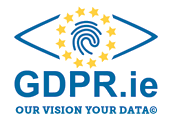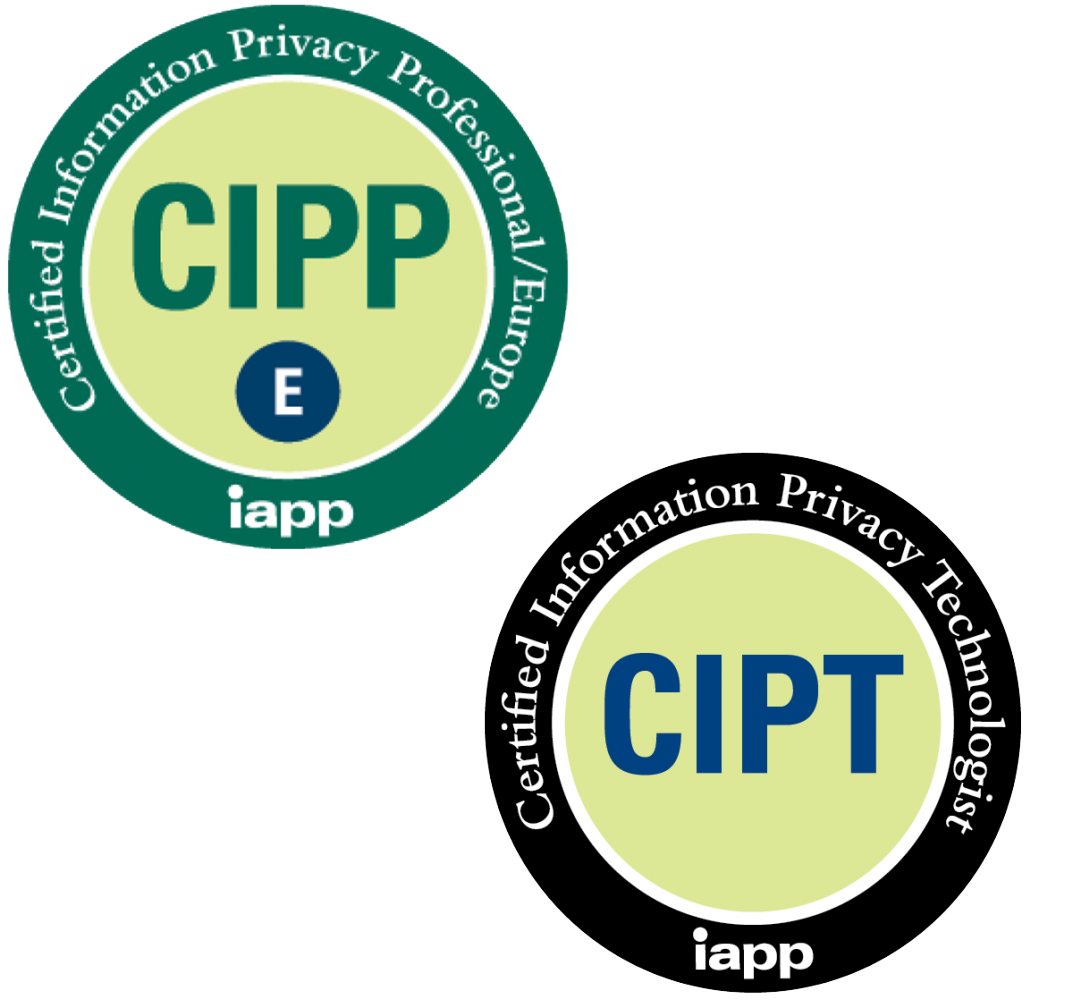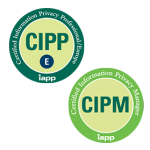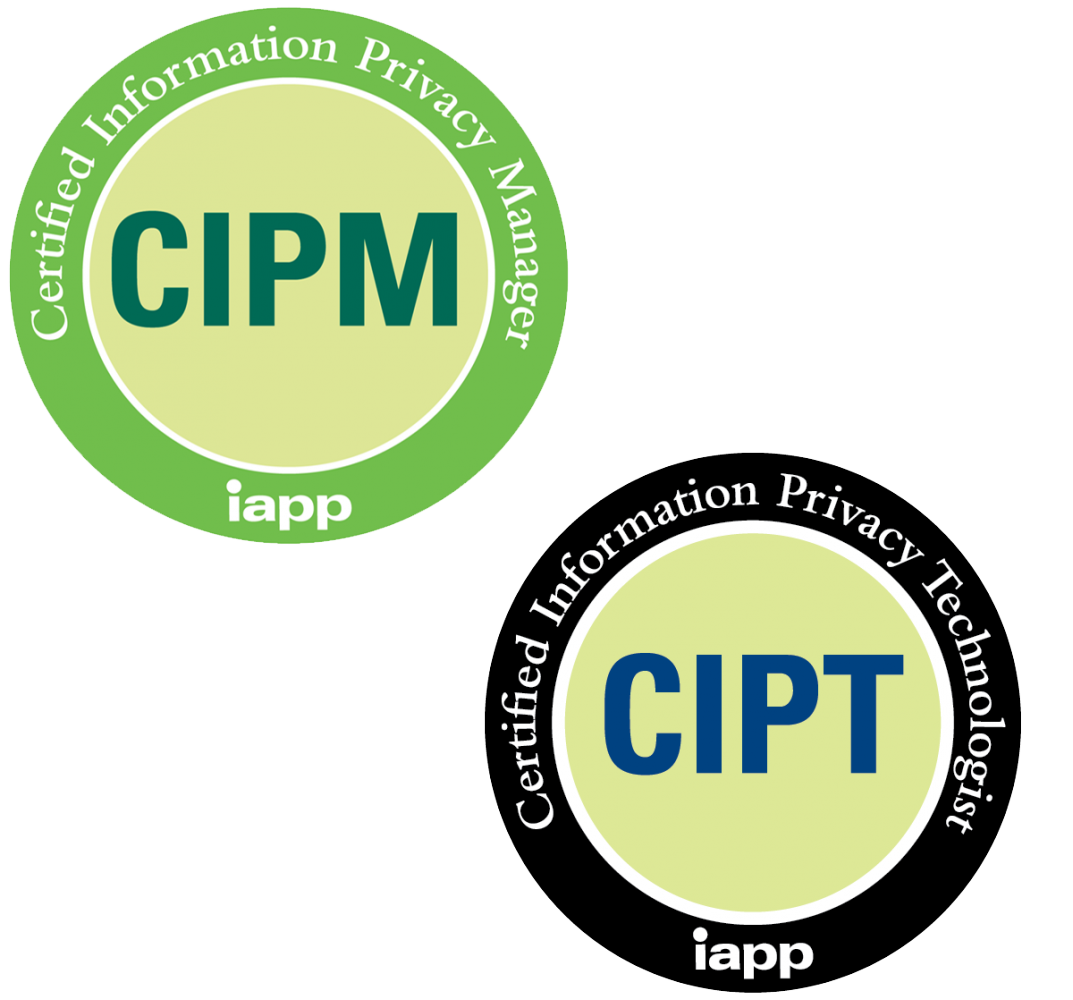Description
This training is an opportunity to learn about critical privacy concepts that are also integral to the CIPP/E & CIPT exam. While not purely a “test prep” course, this training is appropriate for professionals who plan to certify, as well for those who want to deepen their data protection knowledge. Both the training and the exam are based on the same body of knowledge.
Modules & Course Outline CIPP/E
Module 1: Data protection laws
Introduces key European data protection laws and regulatory bodies, describing the evolution toward a harmonised legislative framework.
Module 2: Personal data
Defines and differentiates between types of data as defined by the GDPR, including personal, anonymous, pseudonymous and special categories.
Module 3: Controllers and processors
Describes the roles and relationships of controllers and processors as defined by the GDPR.
Module 4: Processing personal data
Defines data processing and GDPR processing principles, explains the application of the GDPR and outlines the legal grounds for processing personal data.
Module 5: Data subject rights
Describes data subject rights, applications of rights, and controller and processor obligations as set out in the GDPR.
Module 6: Information provision obligations
Explains controller obligations for providing information about data processing activities to data subjects and supervisory authorities as set out in the GDPR.
Module 7: International data transfers
Outlines options and obligations under the GDPR for transferring data outside the European Economic Area, including adequacy decisions and appropriate safeguards and derogations.
Module 8: Compliance considerations
Discusses the applications of European data protection laws, legal bases and compliance requirements for processing personal data in practice, including employers processing employee data, surveillance, direct marketing, and internet technology and communications.
Module 9: Security of processing
Discusses considerations and duties of controllers and processors for ensuring the security of personal data and GDPR specifications for providing notification of data breaches.
Module 10: Accountability
Investigates accountability requirements, including data protection management systems, data protection impact assessments, data protection policies and the role of the data protection officer.
Module 11: Supervision and enforcement
Describes the role, powers and procedures of supervisory authorities; the composition and tasks of the European Data Protection Board; the role of the European Data Protection Supervisor; and remedies, liabilities and penalties for noncompliance as set out in the GDPR.
Modules & Course Outline CIPT
Module 1: Foundational principles of privacy in technology
Summarises the foundational elements for embedding privacy in technology through privacy by design and value-sensitive design; reviews the data life cycle and common privacy risk models and frameworks.
Module 2: The role of the technology professional in privacy
Reviews the fundamentals of privacy as they relate to the privacy technologist; describes the privacy technologist’s role in ensuring compliance with privacy requirements and meeting stakeholder privacy expectations; explores the relationship between privacy and security.
Module 3: Privacy threats and violations
Identifies inherent risks throughout the stages of the data life cycle and explores how software security helps mitigate privacy threats; examines the impacts that behavioural advertising, cyberbullying and social engineering have on privacy within the technological environment.
Module 4: Technical measures and privacy-enhancing technologies
Outlines the strategies and techniques for enhancing privacy throughout the data life cycle, including identity and access management; authentication, encryption, and aggregation; collection and use of personal information.
Module 5: Privacy engineering
Explores the role of privacy engineering within an organisation, including the objectives of privacy engineering, privacy design patterns, and software privacy risks.
Module 6: Privacy-by-design methodology
Illustrates the process and methodology of the privacy-by-design model; explores practices to ensure ongoing vigilance when implementing privacy by design.
Module 7: Technology challenges for privacy
Examines the unique challenges that come from online privacy issues, including automated decision making, tracking and surveillance technologies, anthropomorphism, ubiquitous computing and mobile social computing.





